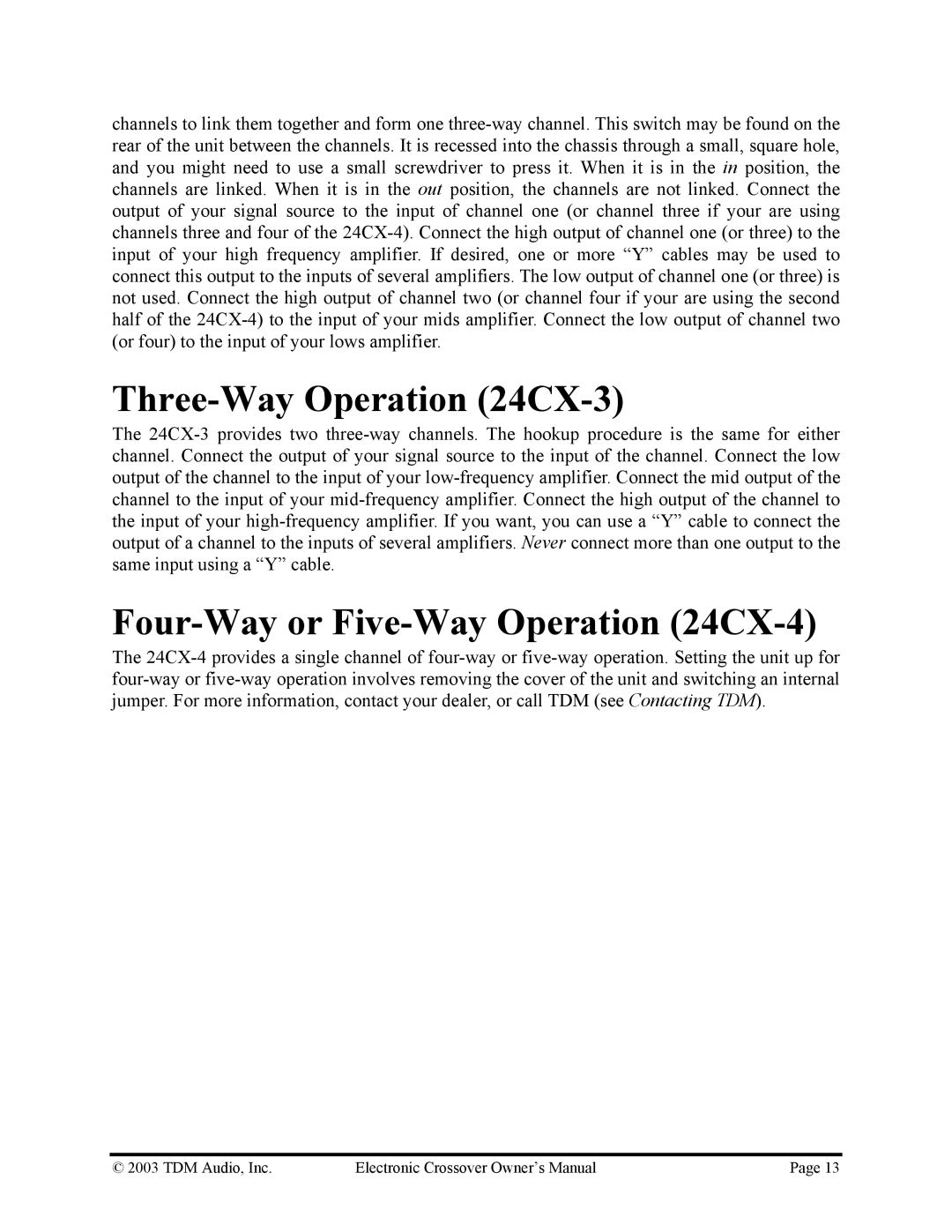
channels to link them together and form one three-way channel. This switch may be found on the rear of the unit between the channels. It is recessed into the chassis through a small, square hole, and you might need to use a small screwdriver to press it. When it is in the in position, the channels are linked. When it is in the out position, the channels are not linked. Connect the output of your signal source to the input of channel one (or channel three if your are using channels three and four of the 24CX-4). Connect the high output of channel one (or three) to the input of your high frequency amplifier. If desired, one or more “Y” cables may be used to connect this output to the inputs of several amplifiers. The low output of channel one (or three) is not used. Connect the high output of channel two (or channel four if your are using the second half of the 24CX-4) to the input of your mids amplifier. Connect the low output of channel two (or four) to the input of your lows amplifier.
Three-Way Operation (24CX-3)
The 24CX-3 provides two three-way channels. The hookup procedure is the same for either channel. Connect the output of your signal source to the input of the channel. Connect the low output of the channel to the input of your low-frequency amplifier. Connect the mid output of the channel to the input of your mid-frequency amplifier. Connect the high output of the channel to the input of your high-frequency amplifier. If you want, you can use a “Y” cable to connect the output of a channel to the inputs of several amplifiers. Never connect more than one output to the same input using a “Y” cable.
Four-Way or Five-Way Operation (24CX-4)
The 24CX-4 provides a single channel of four-way or five-way operation. Setting the unit up for four-way or five-way operation involves removing the cover of the unit and switching an internal jumper. For more information, contact your dealer, or call TDM (see Contacting TDM).
© 2003 TDM Audio, Inc. | Electronic Crossover Owner’s Manual | Page 13 |
